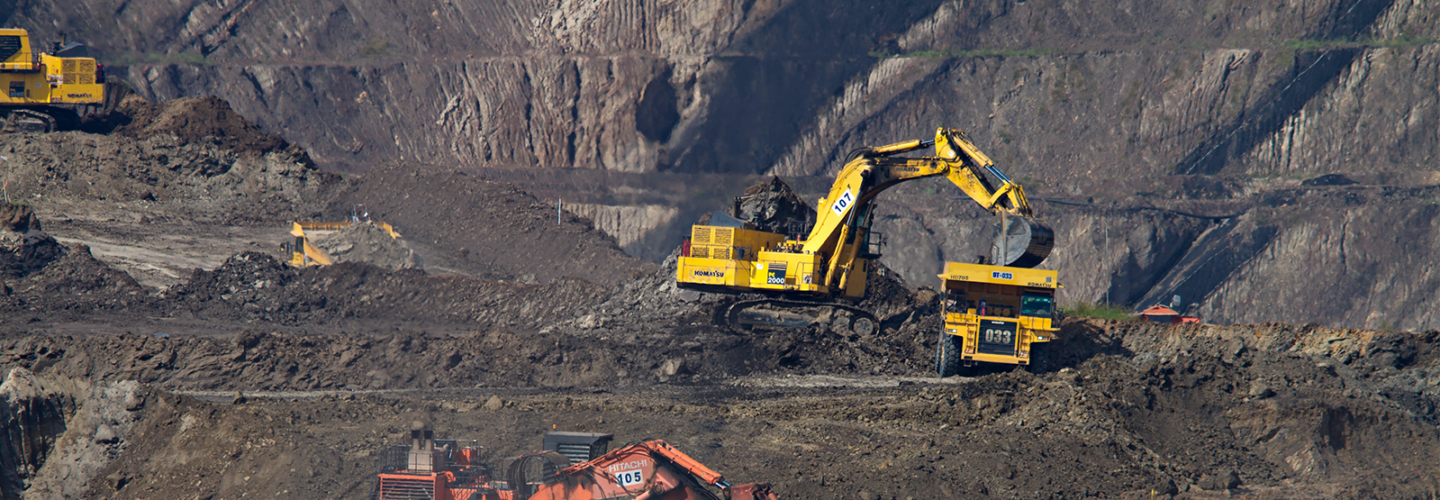
Why a new nature of business can still become a reality
The push for a more ecological way of doing business championed by Europe and China, among others, is cause for hope....

by Håkan Agnevall Published November 30, 2022 in Sustainability • 5 min read
We are running out of time when it comes to carbon emissions. All the scientific models show that we are a long way from reaching the Paris Agreement goals of limiting global warming to well below 2°C compared with pre-industrial levels. The latest COP27 climate conference unfortunately did not manage to speed up action to curb global warming.
This is a real problem. But the social dimension is a key obstacle to the transition to net zero, and we need to acknowledge that the move towards a new way of working will have a significant effect on many people.
The shift that’s needed is not a technology issue – that is pretty much there. It’s more of a challenge for politicians and for people within the industry. The following three major issues still need to be addressed.
More and more countries are proclaiming net zero targets, but the reality is that people are being left behind in the transition. This is a challenge for governments, and not an easy one.

I was recently in South Africa where more than 100,000 people work in the coal industry. The country faces frequent power outages, so it’s simply not realistic to say coal production should be immediately halted. There would be a massive cost, both financial and social.
Key stakeholders need to acknowledge that the transition will take time, but we need to accelerate by finding policies and support structures that work. In the Nordics, for example, there is much discussion about government-funded social support networks that will facilitate transitions and shifts in the economy. Global financial Institutions can play a significant role in supporting the complex process of moving away from fossil economy.
Decarbonizing energy systems is crucial, as they account for around a third of global carbon dioxide emissions. But while the majority of people may favor renewable energy sources, few are keen to have wind and solar farms built in the neighborhoods. The result is that, particularly in Europe, obtaining permits to build renewable infrastructure is difficult.
For example, when President Emmanuel Macron opened France’s first wind farm off Saint-Nazaire at the end of September, it came after 11 years of legal wrangling. In the US, development is accelerating precisely because it does not have the same issues with permits.
As a society we need to have a conversation about what kind of premium we are willing to pay for products, and where the limit is
Wind turbine orders across Europe fell 36% in the third quarter of this year according to a report by WindPower, a Brussels-based association of renewable energy. Slow permitting was cited as a major factor.
The mentality of not wanting wind farms in one’s own neighborhood is perhaps understandable, but the discussion about renewables is fundamentally a political one. As a society, we need to work out where our priorities lie.
Wind and solar power has never been cheaper, but green fuels are expected to be
two to four times more expensive than fossil fuels.
This is an issue that’s close to our hearts at Wärtsilä because we work in the marine and energy markets. The cost of the shift to renewable energy will have an impact on consumers as additional charges will be passed on to them.
If the price of sustainable fuel has risen, how does that affect the price of a pair of sneakers that normally retails at $100? Maersk, one of the world’s leading shipping companies, worked out that the shoes would cost only a couple of cents more. I would suggest that we as consumers would be willing to pay for this.
But as a society we need to have a conversation about what kind of premium we are willing to pay for products and where the limit is. Leveling the playing field cost between fossil fuels and green fuels is needed to help ease the transition.
The current proposal from the European Commission for inclusion of maritime transport in the Emission Trading System as part of the EU’s Fit for 55 package to reduce greenhouse gas emissions by 55% by 2030 goes some way towards doing so. In addition, the European Commission is proposing a Carbon Border Adjustment Mechanism for sectors having high risk of carbon leakage. The CBAM will require from the importer of goods such as aluminum, cement, electricity, fertilizers, iron, and steel, to purchase certificates for the amount of embedded emissions in goods. It’s an idea which makes a lot of sense.
Yet there is no one simple solution. Going green is not a black or white issue and everyone involved knows that this will create challenges. Nor can we do this alone. We are part of an ecosystem, and we need to work with other players from industry as well as political stakeholders including regulators.
It is true that at Wärtsilä – a company that provides technology that uses fossil fuels – we are part of the problem. But with our new technologies we can over time help eliminate carbon emissions in maritime transport and energy production. By shaping the decarbonisation of these sectors we are an important part of the solution.

Chief Executive of Finland’s Wärtsilä
Håkan Agnevall is Chief Executive of Finland’s Wärtsilä, a leading power technology and services provider for the maritime and energy industries. He joined the company in February 2021 from Volvo Buses, a subsidiary of the Swedish commercial vehicle maker, where he was president for eight years. Håkan has held senior management positions with ABB and Bombardier in the fields of power systems, robotics, and industrial automation.

August 28, 2025 in Sustainability
The push for a more ecological way of doing business championed by Europe and China, among others, is cause for hope....

August 19, 2025 • by Julia Binder, Esther Salvi in Sustainability
How the world’s largest independent McDonald’s franchisee is leveraging global brand programs for social and environmental impact across Latin America and the Caribbean. ...

August 12, 2025 • by Julia Binder in Sustainability
Much has been said about corporate sustainability – and much of it is wrong. It’s time to retire common misconceptions and consider it a strategic lever for value creation, resilience, and competitiveness....

August 7, 2025 • by Karl Schmedders, Knut Haanaes in Sustainability
Climate change is making areas “uninsurable.” Businesses must act now—integrate climate risk into strategy or face escalating financial losses....
Explore first person business intelligence from top minds curated for a global executive audience